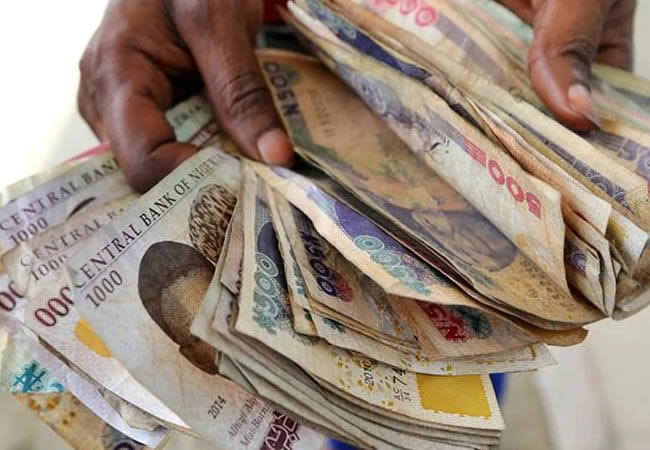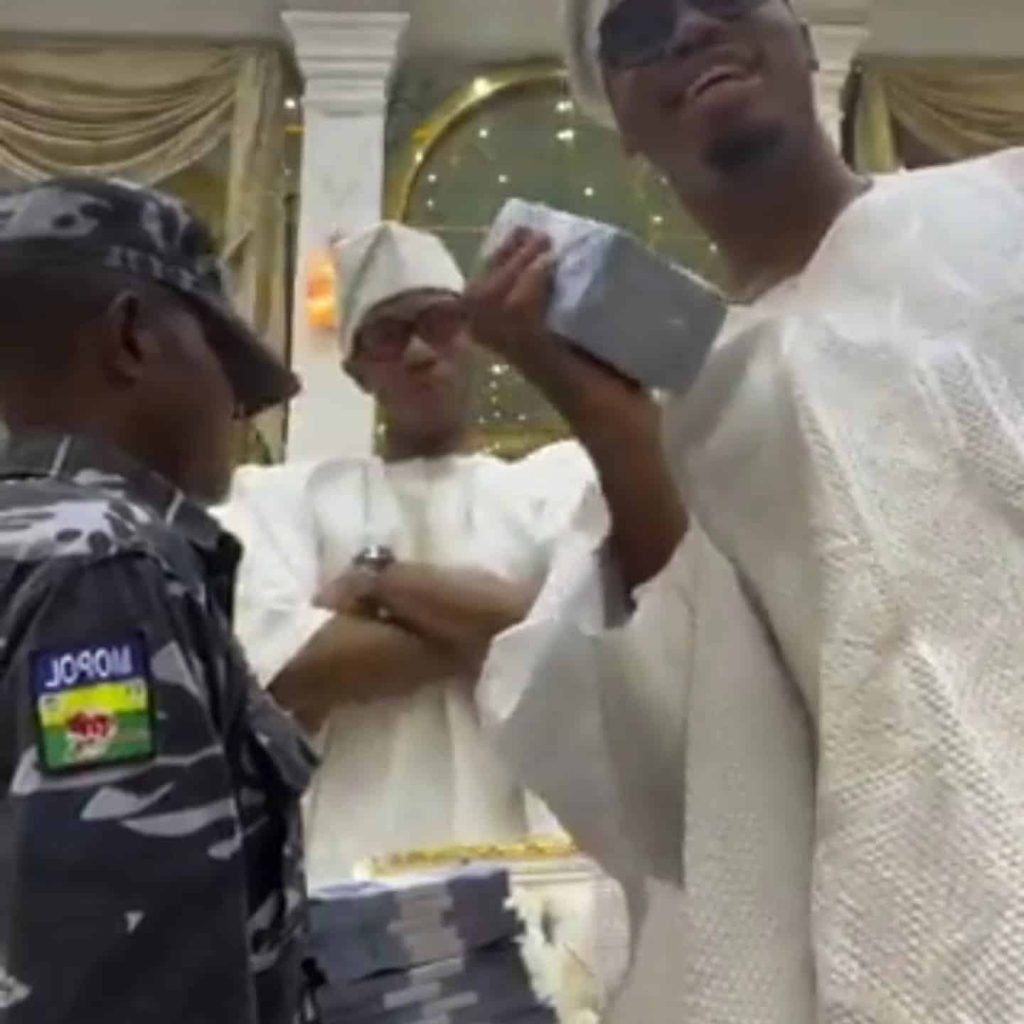In Nigeria, Naira abuse is gradually becoming a serious issue for the Central Bank of Nigeria (CBN) who has the responsibility of protecting the integrity and ensuring circulation of the Naira.
Indeed, the CBN as well as many security agencies have done so much within their power to curtail the abuse of the country’s currency.
But trust Nigerians, when you tell them to stop something, is like telling them to do more of it. Hence, despite numerous warnings by the apex bank and other security agencies, the abuse of Naira only continues to rise.

Recently, a video of Raheem and his brother, Wahab, sons of Lagos businessman, Chief Rasaq Okoya, abusing the naira went viral.
In the video, a policeman is seen holding some cash as the brothers dance and toss the naira notes into the air.
But guess what?
When the time for punishment came, it was the police officer that was punished and not the culprits.
What Nigerians could not understand till this very moment is why that officer was arrested and not the sons of Okoya who abused the Naira.
Well, one of Okoya’s sons have tendered a public apology.
And Nigerians cannot help but wonder why the police officer is still in detention and not the Okoya’s.
However, that is a story for another day.
The Apology
In his apology, Raheem Okoya urged Nigerians to pardon his behaviour.
He claimed he was ignorant of the consequences of his actions.
Well, for all the Raheems out there, this article is for you.
After now, you will not be ignorant of what the law says about Naira abuse like Raheem Okoya.
While the Nigerian Constitution does not explicitly address the issue of “Naira abuse” in specific terms, it indirectly covers the matter under laws related to currency, financial conduct, and public order.
The Nigerian Constitution serves as the supreme law of the land, and any laws regarding currency abuse would fall under the jurisdiction of other specific legal frameworks, such as the Central Bank of Nigeria (CBN) Act and the Criminal Code Act.
Here are a few relevant legal aspects that relate to the abuse of the Naira:
Central Bank of Nigeria (CBN) Act
The Central Bank of Nigeria (CBN) is the sole issuer of the Naira and has the legal authority to regulate and manage the nation’s currency.
Under the CBN Act, any act that defaces, mutilates, or abuses the Naira is considered illegal. For instance, the Currency Structure under the CBN Act criminalises the act of intentionally damaging or destroying Naira notes and coins, as well as using them inappropriately (e.g., using Naira notes for commercial purposes such as souvenirs or in events).
Criminal Code Act
The Criminal Code Act of Nigeria, which applies to the southern part of Nigeria, also contains provisions regarding offenses related to currency abuse. Specifically, Section 21 of the Criminal Code makes it illegal to intentionally deface, mutilate, or destroy currency notes or coins.
You May Like: Drama As Police Arrest Chief Okoya’s Sons’ Police Escort Over Naira Abuse
This is reinforced by Section 20 of the CBN Act, which prohibits the unauthorised use or abuse of the currency (Naira), including acts like writing on the currency, tearing it, or turning it into items for sale or decoration.
Penalties for Naira Abuse
You see, ignorance is not an excuse. So, if like Raheem, you are thinking of claiming ignorance when caught, the know that you may be making a big mistake.
Well, it is important to understand the consequences of this act before engaging in it.
Those found guilty of abusing, mutilating, or damaging Naira notes or coins face legal consequences. Under the CBN Act, individuals found guilty of such offenses may be fined or face imprisonment.
Penalties include a fine of up to 50,000 Naira or imprisonment for a term of up to 6 months, or both.
In summary, while the Nigerian Constitution itself does not directly prohibit Naira abuse, various laws, particularly the Central Bank of Nigeria Act and the Criminal Code, make Naira abuse, such as mutilation or intentional destruction of the currency, a punishable offense.

